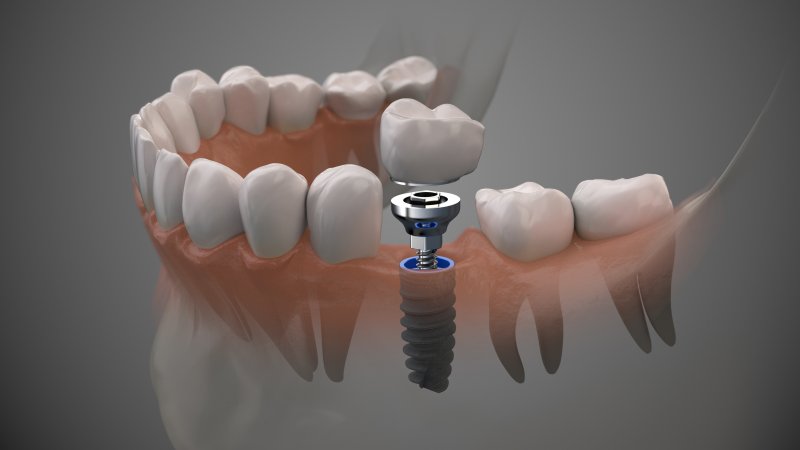Standing in the Way: What Can Keep You From Receiving Dental Implants?
July 16, 2025

For millions of people in the United States, dental implants have helped restore their confidence, enhance their appearance, and change the way they embrace life. Their ability to rebuild more than the visible aspect of missing teeth but also the function makes them a truly unique option for those suffering from tooth loss. But are they a suitable option for everyone? Are there potential problems that can get in the way of successful placement? Read on to learn how working with a dentist can make these permanent prosthetics a reality.
Potential Problems: What Issues Can Inhibit Dental Implant Treatment?
While some patients are cleared for oral surgery almost immediately, most require some form of preliminary care, as certain problems can make receiving dental implants more challenging. These include:
- Poor jawbone density: The jawbone is essential to dental implant success. If it is not dense enough, it will not support the titanium posts. Depending on how long it has been since an individual has lost one or more of their teeth, bone resorption can occur, causing this area to weaken over time.
- Autoimmune disorders/health conditions: Certain health conditions, like diabetes, cancer, cardiovascular disease, etc., can make it difficult to ensure successful placement and healing. These health issues can weaken the immune system, increasing the risk of dental implant failure.
- Existing oral health problems: An infection or gum disease that exists and remains untreated can minimize the chances of successful implantation. If bacteria are attacking the soft oral tissues, this can increase the risk of bone loss, which can lead to failed osseointegration – the fusing of the implants with the jawbone.
- Lifestyle habits: Although many patients do not consider their lifestyle habits to be a problem, those who smoke or grind their teeth can expect a riskier dental implant placement process. These habits can affect healing and the ability for posts to fuse with the jawbone. Not to mention, the potential damage that can occur because of excessive pressure placed on teeth while asleep.
Are Dental Implants Still Possible?
Even if a dentist declares that a patient possesses one or more of the above-mentioned issues, there is still hope for dental implants.
As part of the all-encompassing treatment plan, preliminary care can be incorporated to create a healthier environment for these prosthetics to live. Whether it’s administering gum disease treatment, extracting a severely decayed tooth, or performing a bone graft to create a denser jawbone, these beneficial solutions can pave the way for successful dental implant placement later on.
The timeframe for achieving a healthier, permanent, and more durable smile may take longer, but the care and attention provided to ensure dental implant success is certainly worth it.
About the Author
Dr. Meghrik Assadourian is a periodontist who specializes in treating gum disease and placing dental implants. Earning her dental degree from the University of California San Francisco, she spent one year in a rigorous general practice residency training at the University of Las Vegas in Nevada. She then obtained her CAGS degree in periodontology and implant dentistry from Boston University. At Dental Health & Wellness Boston, she works closely with patients who are suffering from tooth loss and want a second chance to smile confidently with dental implants, so if you are one of these individuals, check out our website or call (617) 742-1220 today.
No Comments
No comments yet.
RSS feed for comments on this post.
Sorry, the comment form is closed at this time.
